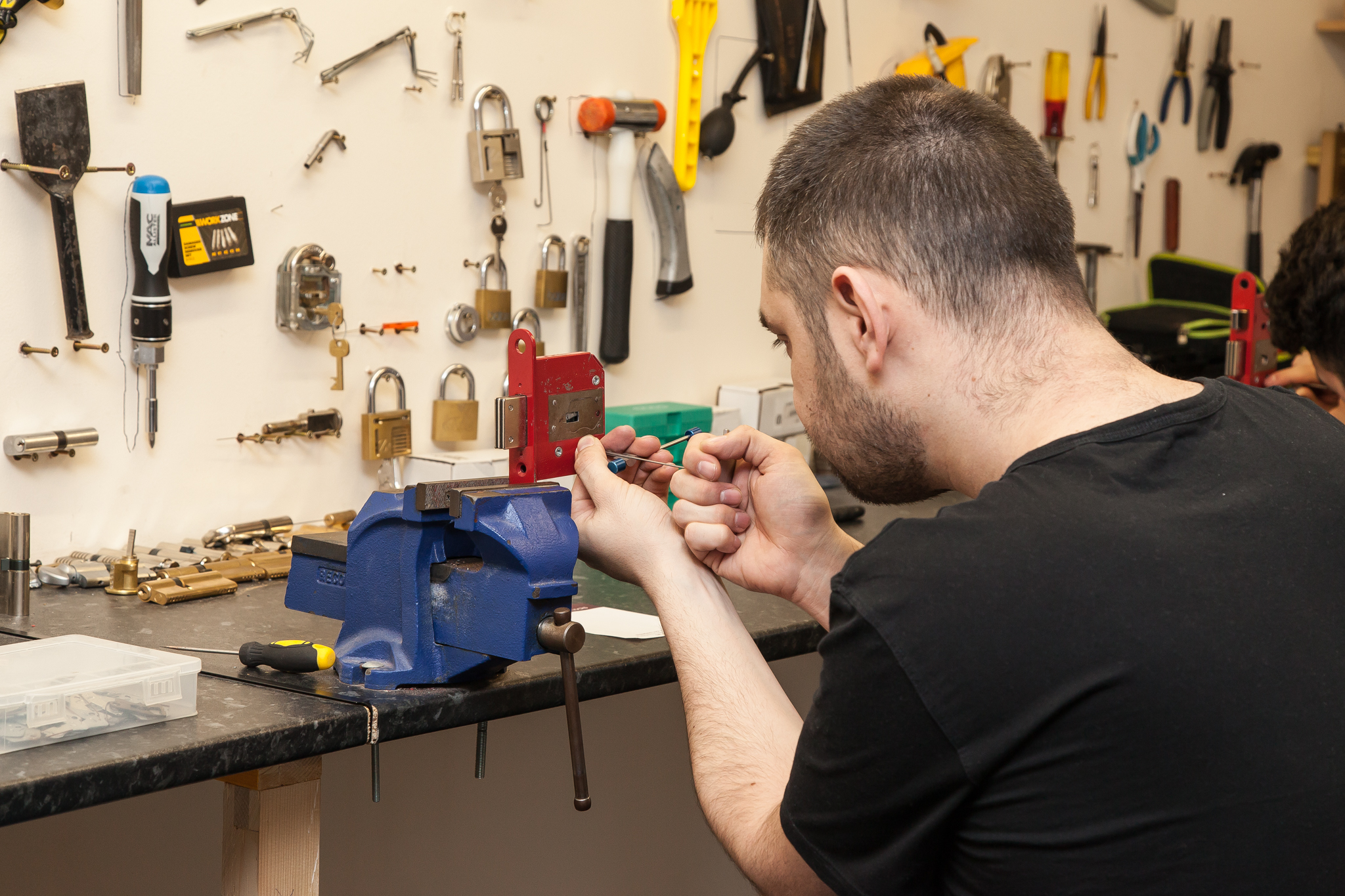Do you love solving puzzles? Are you pretty mechanical? Wouldn’t it be great if you could use those skills to help people? Well, as a locksmith, you can!
As a professional locksmith, you’ll learn to pick locks without damaging them, as well as key-cutting, lock installation, working with security systems, and more.
If you’re interested in becoming a locksmith, the following guide will show you how you can find a career in the steady, exciting field of locksmithing.
What Will I Need to Start?
To begin, you’ll need some money for your training program of choice, as well as access to the necessary tools (especially if you’re taking online courses). These can be difficult to find, so be sure to buy the products recommended by your educator.
Before you begin, it’s also important to to ensure that you’ve got a pretty clean criminal history. Any felonies or even violent or theft-related misdemeanors can affect your ability to work as a locksmith.
How Long Will it Take to Become a Locksmith?
Depending on the training programs and levels of certification you’re seeking, the process could be as short as a few months or as long as a few years.
- Locksmith Training: Finding the Right Program
Most locksmith training programs combine hands-on learning with necessary classroom time. There are lots of locksmithing schools around the country; if you can’t find one near you, don’t worry–you can learn many necessary locksmith skills online.
To find a program that’s been approved by the ALOA (Associated Locksmiths of America), you can visit their website to view a list of approved courses.
Courses will cover diverse topics like:
- Key-making & identification
- Working with residential and commercial security systems
- Lock picking & installation
- Electronic access locks
Licensing: Locksmith Certification
Depending on the state in which you live, you might need a license to be a practicing locksmith. It’s understandable–locksmiths have access to extremely sensitive areas; people need the peace of mind that comes from hiring accredited professionals to work on locks and security systems.
In many states, you’ll simply need to pass a basic criminal background check. In certain states however, you need to complete a mandated training program, then pass the licensing examination. You can get a good idea of your state’s requirements by doing a simple Google search for “(Your State) Locksmith Requirements”.
Voluntary Certifications
Many locksmiths choose to pursue one or more voluntary certifications. These can qualify locksmiths to work on more complicated systems and more sensitive jobs. These courses will allow you to work your way up from a licensed locksmith all the way up to a master locksmith.
Further Training: Apprenticeship & Trainee Locksmith Programs
While it’s not required, many beginners benefit from a period of apprenticeship with a master locksmith. Talk to some locksmiths in your area about your goals in the profession and see if they’re amenable to the idea of taking you on as an apprentice. This hands-on real life experience will provide crucial lessons for your future career.


